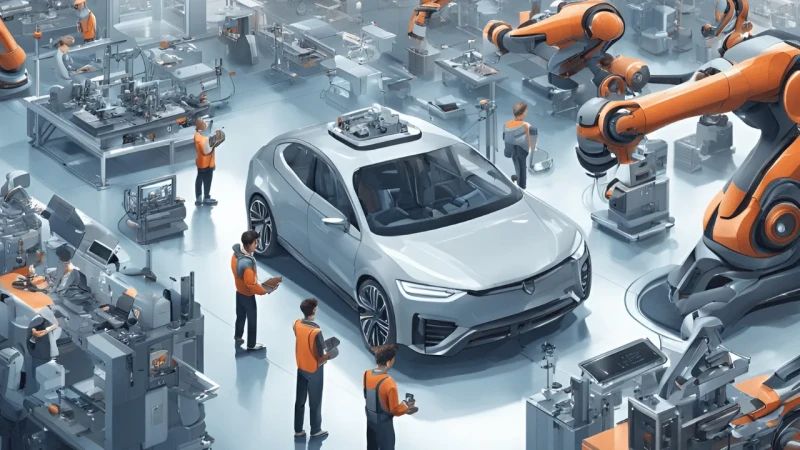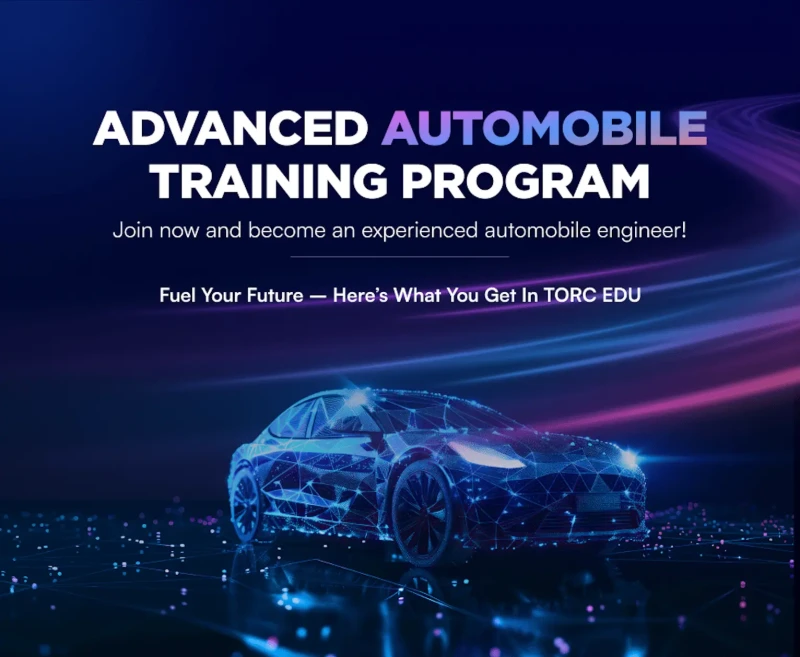Career Opportunities in Automobile Engineering: What You Need to Know
Automobile engineering is a dynamic and innovative field that offers a plethora of career opportunities for those passionate about vehicles and technology. As the automotive industry continues to evolve with advancements in technology, sustainability, and design, the demand for skilled automobile engineers is on the rise. Whether you're just starting out or looking to advance your career, understanding the various opportunities available can help you navigate this exciting industry. Here’s what you need to know about career opportunities in automobile engineering.
1. Overview of Automobile Engineering
Automobile engineering, also known as automotive engineering, involves the design, development, manufacturing, testing, and maintenance of vehicles. This field encompasses a broad range of activities and specializations, making it a versatile career choice.
2. Core Areas of Specialization
Automobile engineering offers several areas of specialization, each with unique responsibilities and opportunities:
- Design Engineering: Focuses on creating the visual and functional aspects of vehicles, including exterior and interior design. Design engineers use software tools like CAD (Computer-Aided Design) to bring their ideas to life.
- Manufacturing Engineering: Involves the development and optimization of manufacturing processes to produce vehicles efficiently and cost-effectively. This specialization requires knowledge of production techniques, quality control, and supply chain management.
- Performance Engineering: Ensures that vehicles meet performance standards, including speed, fuel efficiency, and handling. Performance engineers conduct tests and simulations to optimize vehicle performance.
- Safety Engineering: Concentrates on the safety features of vehicles, including crashworthiness, occupant protection, and safety systems. Safety engineers perform rigorous testing to ensure compliance with safety regulations.
- Maintenance Engineering: Focuses on the upkeep and repair of vehicles to ensure they operate efficiently and safely. Maintenance engineers develop maintenance schedules and diagnostic procedures.
3. Emerging Trends and Technologies
The automotive industry is undergoing significant transformations driven by technological advancements. Here are some key trends shaping the future of automobile engineering:
- Electric Vehicles (EVs): The shift towards electric mobility is creating demand for engineers with expertise in battery technology, electric drivetrains, and charging infrastructure.
- Autonomous Vehicles: The development of self-driving cars requires engineers skilled in AI, machine learning, and sensor technologies.
- Connected Vehicles: With the rise of the Internet of Things (IoT), vehicles are becoming more connected, necessitating knowledge of software development and cybersecurity.
- Sustainable Design: Engineers are focusing on eco-friendly designs and materials to reduce the environmental impact of vehicles.
4. Career Pathways and Job Roles
Here are some of the prominent career pathways and job roles in automobile engineering:
- Automotive Design Engineer: Responsible for designing vehicle components and systems, ensuring they meet aesthetic and functional requirements.
- Quality Assurance Engineer: Ensures that vehicles and components meet quality standards through testing and inspections.
- Production Engineer: Manages the manufacturing process, optimizing production lines and ensuring efficient operation.
- R&D Engineer: Conducts research and develops new technologies to improve vehicle performance, safety, and efficiency.
- Field Service Engineer: Provides technical support and maintenance services to customers, troubleshooting and resolving issues.
5. Required Skills and Qualifications
To succeed in automobile engineering, you need a blend of technical and soft skills:
- Technical Skills: Proficiency in CAD software, knowledge of automotive systems, understanding of manufacturing processes, and familiarity with industry standards.
- Analytical Skills: Ability to analyze data and solve complex problems.
- Creativity: Innovative thinking for designing and developing new vehicle concepts.
- Communication Skills: Effective communication with team members, stakeholders, and customers.
- Continuous Learning: Staying updated with the latest industry trends and technologies.
6. Educational Pathways
Starting a career in automobile engineering typically requires:
- Bachelor’s Degree: A degree in automobile engineering, mechanical engineering, or a related field is essential.
- Advanced Degrees (Optional): A master’s degree or Ph.D. can provide deeper knowledge and open up higher-level positions.
- Certifications: Obtaining certifications like ASE (Automotive Service Excellence) can enhance your qualifications.
7. How TORCEDU Can Help
At TORCEDU, we offer comprehensive courses and training programs to help you excel in automobile engineering. Our curriculum is designed to provide you with:
- In-Depth Knowledge: Covering all core areas and emerging trends in the industry.
- Practical Experience: Hands-on training with the latest tools and technologies.
- Career Support: Assistance with internships, job placements, and career development.
Conclusion
A career in automobile engineering is both challenging and rewarding, with diverse opportunities for specialization and growth. By staying informed about industry trends, developing the necessary skills, and pursuing the right educational pathways, you can build a successful career in this dynamic field. At TORCEDU, we are committed to providing you with the knowledge and resources you need to thrive in the world of automobile engineering. Enroll in our programs today and take the first step towards a fulfilling career.








